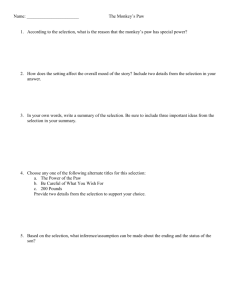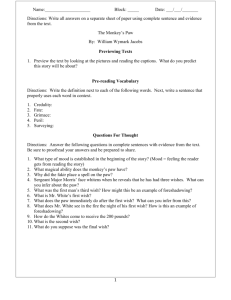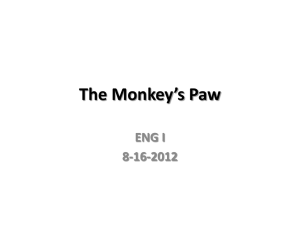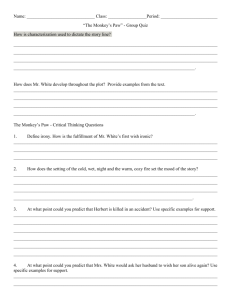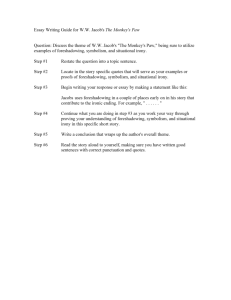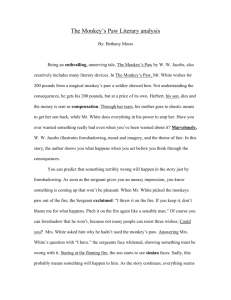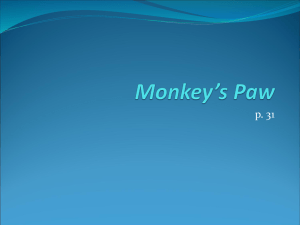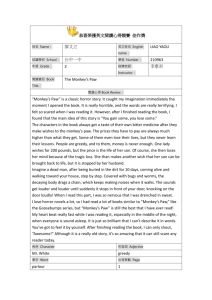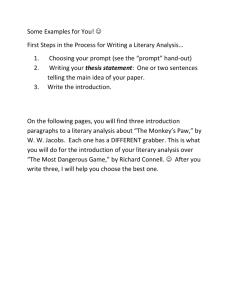The Monkey's Paw: Author, Context & Foreshadowing Analysis
advertisement
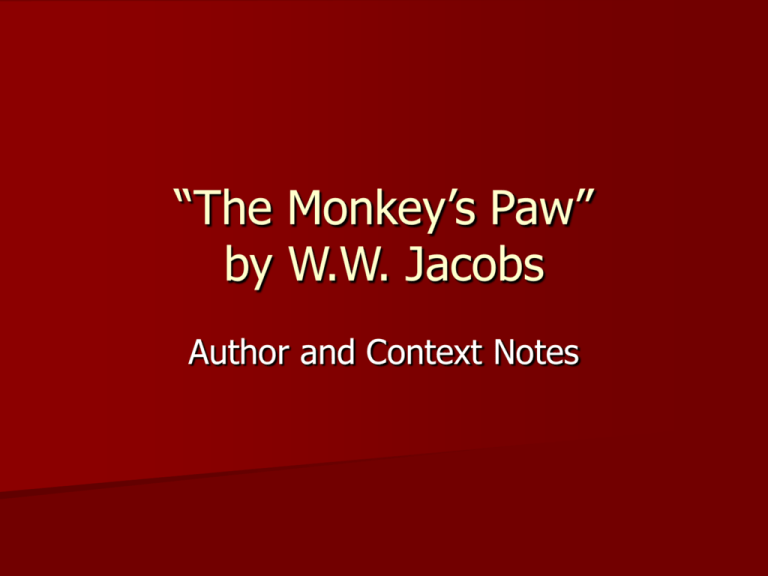
“The Monkey’s Paw” by W.W. Jacobs Author and Context Notes Author Notes W. W. Jacobs, the author of “The Monkey’s Paw” was born in London, England in 1863. He died in 1943 at the age of 80. Author Notes When he was young, he listened to tales told by sailors he met at his dockside house where he lived with his father. These were stories about everyday life disrupted by strange and fantastic events. Author Notes “The Monkey’s Paw is his most famous tale of suspense and the supernatural. It was first published in 1902 and made into a one-act play a year later. Culture / Context One of the major motifs in the story is that of FATE – a force that determines the outcome of events before they occur. Culture / Context Ancient Greeks and Romans worshiped fate in the form of the 3 Fates who wove human destiny – Clotho: Spins the thread of life – Lachesis: measures the thread of life – Atropos: cuts the thread of life Culture / Context The theme of wishing found in “The Monkey’s Paw” is very common in the folklore of different cultures. Culture / Context In a Jewish folk tale from Eastern Europe, a man is helped by a magical wishing ring, but nearly dies when he reveals this to others. Culture / Context An Ancient Chinese tale tells of the Mother Heaven who tries to grant everyone’s wish, but who only causes problems. Culture / Context In Middle Eastern cultures, Djinn (commonly called Genies) assist or cause mischief through the granting of wishes. A famous example of this is the tale of Aladdin, from The Thousand and One Arabian Nights. Literary Focus: Foreshadowing In foreshadowing, writers give clues to the outcomes of the stories they write before the events play out later in the plot. Literary Focus: Foreshadowing Practice your foreshadowing detective skills by paying close attention to the story told by the Sergeant Major at the outset of the story. Important clues are given well before the conclusion of the story.
